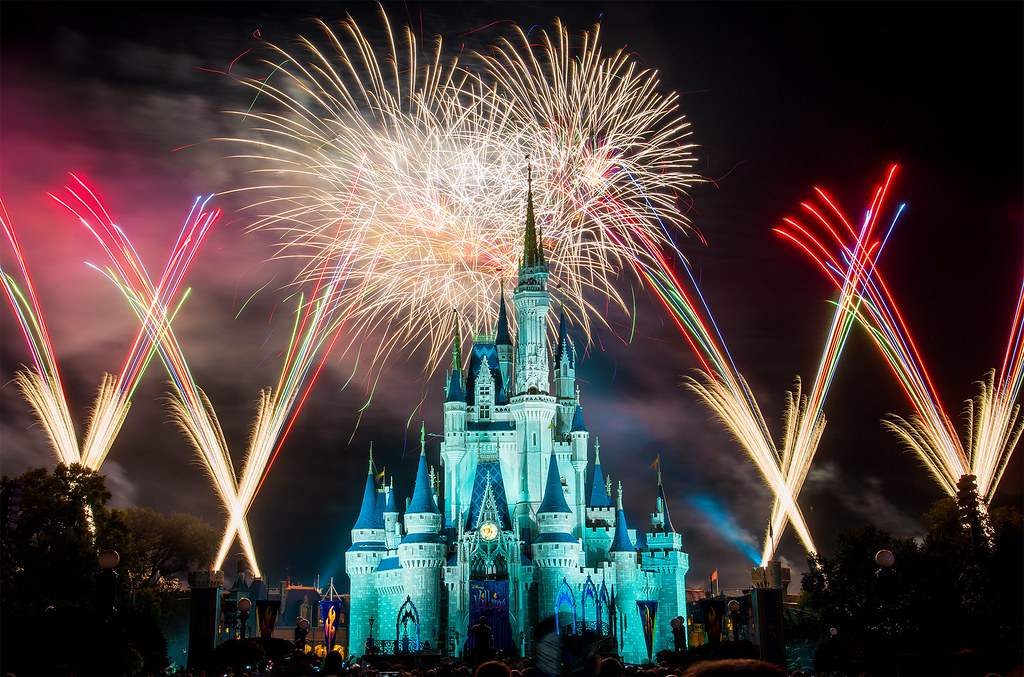Disney World is a magical place where young children can feel otherworldly, and where all of their dreams can come true. Just like Disney World, the narrator’s college campus in Invisible Man is a fascinating, rose-colored haven whose presence blinds its residents from the abominations of life. The black-only state college functions as a symbol of false hope for young black people and takes advantage of their naiveté, causing them to be molded into obedient secondary citizens.
The imagery used to describe the college is a strong clue. The roads are described as “gracefully winding”, while “the moon shone down on the building” (34). The “wild roses dazzled the eyes in the summer sun” (34). These visuals of the college entice the students to become open and pursue their goals, just like Disney World does for young children. But, unlike Disney World, the college is reserved for adults. Adults who are unaware of how the college is manipulating them into becoming “zombies” and “mechanical” (94).
The college is a symbol of false hope because it manages to convince young black students they can follow their dreams, even though society will never allow African-American success to become mainstream. In its glittering magnificence, distant from horrors such as Jim Trueblood, the college creates dreamers out of once pragmatic individuals. As the millionaires “descended from the North” like “St. Nicholas”, they, the white men such as Mr. Norton who perpetuate the falsehood of plausible black success in such a society, preserve the invalid beliefs through their whimsical descriptions of the future (37). Together, the college and its entourage of Santa Clauses create a synergistic body claiming the black students can become anything they want. Supposedly, with hard work and a little fairy dust, anything can happen; this, of course, is not true.

How upsetting that the narrator's hard work and dilligence in college is not helping him to gain the place in society he so desires and deserves. It will be interesting to track the narrator's hard work throughout the novel to see how much he gains in relation to the effort he puts out. Since this college is such a prominent symbol in the novel, here's a question for all of you out there: can this fictional college be connected to a real college and its "Founder"?
ReplyDeleteThe comparison between the narrator’s college and Disney World reveals the disguise of the college. The college appears to be an attractive campus with many chances for the students to succeed. This can explain the joy the narrator feels upon receiving a scholarship for this black-only college. The contrast between Disney World and the college explains the reality of the college. The college will not allow the students to achieve their dreams (as Disney World would). There is nothing attractive about this college. The narrator is naïve when he receives the scholarship to this college. He doesn’t understand the limits this college will place on him. The white men give him the scholarship. Would the white men have done the same if the college allowed for black students to make an impact on the world?
ReplyDeleteDisney World is a place where all can be excited, happy, and live freely. As many tend to dream of what could be in such a wonderful place, the narrator knows that his dreams could never be fulfilled. Why? His skin color prevents him from achieving for no reason other then how he looks. This "false hope" that the college advertises supports what the author knows inside. Julia, I love the the last point you brought up. The white men awarded him with a scholarship but was the scholarship really worth as much as it seemed?
ReplyDeleteI found interesting how you compared the narrator's college experience with that of Disney World. Disney World is much a false reality much like the college. Of course it may seem enjoyable at first glance but in actuality it is not. At Disney World you are expected to be dreamt of as some other worldly character but once you're back in the real world you are faced with reality. The narrator can go to college and get his education but after leaving he'll still have to face the real world realities.
ReplyDelete